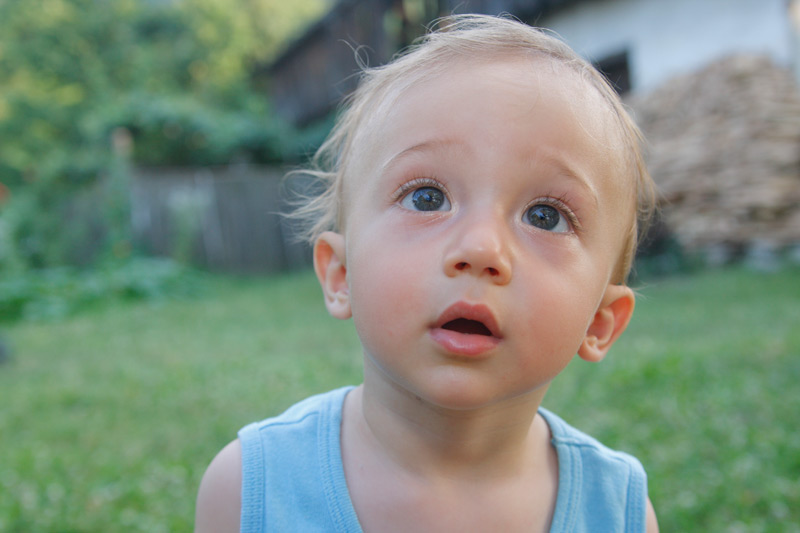What we sometimes call "religious education," or "faith development," or spiritual deepening occurs through all the phases of our lives: the "young, growing god," as well as "the old, aching god" as our hymn "Bring Many Names," says. And as we sing in another of our hymns, "We Laugh, We Cry": "We dedicate our minds and hearts to the spirit of the child . . . for we believe that growing is an answer."
Sara Moores Campbell (now Sarah York, I understand) offers us this prayer:
Give us the spirit of the child.Children are what growing looks like.
Give us the child who lives within:
The child who trusts,
The child who imagines,
The child who sings,
The child who receives without reservation,
The child who gives without judgment.
Give us a child's eyes, that we may receive the beauty and freshness of this day like a sunrise;
Give us a child's ears, that we may hear the music of mythical times.
Give us a child's faith, that we may be cured of our cynicism.
Give us the spirit of the child,
Who is not afraid to need;
Who is not afraid to love.
If it seems paradoxical what Shunryu Suzuki once said -- he said: “All of you are perfect just the way you are, and you could use a little improvement” -- if that seems contradictory to you, or at least paradoxical -- just look at a child. Perfect, right?
If you have doubts about that, just ask the child’s parents. They’ll tell you: perfect.
If you are still having your doubts, if you are imagining a child who doesn’t seem perfect, think younger. If you’re imagining a flawed 13-year-old, imagine a 6-year-old. If you’re imagining an imperfect 6-year-old, imagine a 2-year-old,.;..oh, wait, maybe skip the 2-year-old. Imagine a newborn.
My first encounter with undeniable human perfection came the day my daughter was born. She was perfect then. She's 31-years-old now. If I ask, "When did she ever stop being perfect?" I have to answer, "She never did." And if she never stopped being perfect, then neither did I. Neither did you.
All of us are perfect, but maybe it's easier to see that in a child than in ourselves or other adults. Yet the very child that so clearly manifests perfection is also always growing. Perfect, yet improving – in the sense of growing, learning, deepening. The ways that they change, the arc of the development they’re on, is a key part of what makes them perfect.
Children show us what growing looks like – while also being perfect just as they are.
Children grow – they can’t help it. Grownups sometimes get stuck. We adults, we can hit a plateau, and stay at that level of development. We can stay stuck in development for years, indefinitely, unless and until something gets the ball rolling again.
It might be something you don’t choose. A crisis jolts you out of complacent stasis. The house burns down, a spouse dies, you lose your job. You’re stunned, and grope for a way to come to terms with the loss. Anybody who says to you in that moment, “This is a growth experience for you,” is liable to be someone you will want never to talk to again.
 |
| The perfect and growing (Julia) Child, circa 1970 |
We never choose to grow in that traumatic way. We wouldn’t wish such a thing on anybody. But had the crisis not happened, awful as it was, we might have gone to our graves without growing the rest of the way up.
There are other ways it can happen....
* * *
This is part 1 of 6 of "What Growing Looks Like"
Next: Part 2: "Books, Retreats, and the Grown-Up Work of Growing"





No comments:
Post a Comment